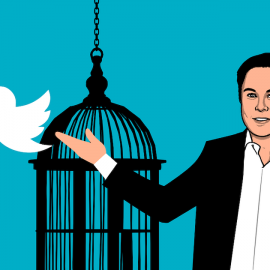

This article is an excerpt from the Shortform book guide to "Excellence Wins" by Horst Schulze. Shortform has the world's best summaries and analyses of books you should be reading.
Like this article? Sign up for a free trial here.
Does your staff seem unmotivated? Why do employees need to clear vision of the company’s objectives?
Horst Schulze believes that too many managers view their employees as reluctant workers who need to be pushed or coerced into action. Instead, he argues that leaders get better results if they inspire their employees to want to work hard.
Check out a couple of ways to motivate your staff to accomplish your goals.
Motivate Your Team
It’s possible to motivate your staff to achieve company goals because humans have an innate desire for purpose and meaningful relationships, according to Schulze. The opportunity to provide world-class service to customers is a chance for them to attain both of these desires: Employees feel like they’re accomplishing a worthy purpose by working at an elite level, and they build meaningful relationships by working together and serving customers.
(Shortform note: In The Leadership Challenge, James Kouzes and Barry Posner elaborate that leaders can further motivate their workers by giving them opportunities to actively shape the company’s purpose. For instance, survey your employees about the greater purpose they want to accomplish with their work and adjust your company strategy based on their feedback. Likewise, leaders can encourage their workers to build meaningful relationships by frequently gathering them to celebrate each other’s accomplishments. Research shows that group celebrations strengthen bonds between co-workers and make them feel like a community.)
Schulze argues that there are two ways to motivate your staff: Grant them the authority to improve the business and establish a clear vision.
Action #1: Grant Employees Authority to Improve the Business
First, Schulze states that if you want motivated employees, they need to feel like they have the authority to personally improve the business on a daily basis. Managers don’t always give this authority to their employees: Often, employees are told they have to follow strict operational procedures or pass problems off to a manager rather than creatively solving problems themselves. In contrast, Schulze gives every one of his employees at the Ritz-Carlton permission to spend up to $2,000 in any way that keeps a hotel guest satisfied with their experience, without pre-approval of any kind.
Giving employees this authority is inherently motivating, says Schulze. When workers feel like management respects and trusts them to judge how best to serve the customer, they’ll want to work hard to live up to their managers’ expectations.
Schulze argues that giving all employees authority is particularly effective because frontline workers have the best vantage point to identify problems and solutions. They’re closer to the customers than managers or owners, so they often have a better sense of how to improve the customer experience.
If every employee is obligated to fix every flaw with your business or customer problem they encounter (even if it’s technically outside of their job description), your business will, over time, offer an increasingly high-quality customer experience. For example, a janitor in a dentist’s office might notice that the waiting area magazines are outdated and worn. If given authority, the janitor could remove the old magazines and buy new, fresh reading options to make the waiting area more inviting for customers.
Action #2: Establish a Clear Vision
Schulze contends that if you want to motivate your team, you must set a clear and worthy vision for what you want to accomplish. This vision will be a more effective motivator if it primarily benefits other people rather than just yourself—by accomplishing it, you become a force for good in the world. Additionally, if you want your business to be profitable, part of your vision should involve providing your customers with the best possible experience (as we’ve discussed).
This vision is the purpose that your employees naturally crave. Even if it’s challenging, employees ultimately want to work toward an inspiring vision because it allows them to feel pride and gain admiration for their achievements.
Schulze argues that a clear vision also helps you maintain your priorities during challenging times. When you’re forced into difficult lose-lose situations, the vision serves as a compass, revealing what decisions best align with the organization’s core purpose.
For example, say a software company is debating whether to eliminate some advanced features from the new version of their flagship product to meet a deadline. However, their core vision is to provide customers with the most innovative and capable software solutions on the market. Staying true to that vision leads them to keep developing the advanced features, even if it forces them to delay their launch. Ultimately, this is what’s best for their customers.
| Your Vision Should Be Unattainable and Resilient In The Infinite Game, Simon Sinek elaborates that your vision for the good you want to accomplish in the world should be ultimately unattainable. A vision that could theoretically be permanently solved once you reach a certain milestone wouldn’t be ambitious enough to inspire passion and purpose in your team. For example, if you run a financial advisory firm, you could make it your vision to empower every individual to achieve the financial security they need to achieve their dreams. Moreover, while Schulze asserts your vision should be something that helps you maintain your organization’s core priorities during challenging times, Sinek takes this further. He contends the vision you choose must be resilient enough to endure massive changes and challenges to your industry that force you to transform your services and products. For example, imagine if a company that provides art therapy for people with mental disorders could no longer conduct in-person sessions during the Covid-19 pandemic in 2020. Guided by their vision (use creativity and self-expression to help heal everyone who needs it), they might have pivoted and developed an online art therapy platform with virtual courses, activities, and a supportive community. |

———End of Preview———
Like what you just read? Read the rest of the world's best book summary and analysis of Horst Schulze's "Excellence Wins" at Shortform.
Here's what you'll find in our full Excellence Wins summary:
- Why you should focus on retaining loyal customers
- The risks of cutting costs in the wrong places
- How to delight customers by anticipating their needs






